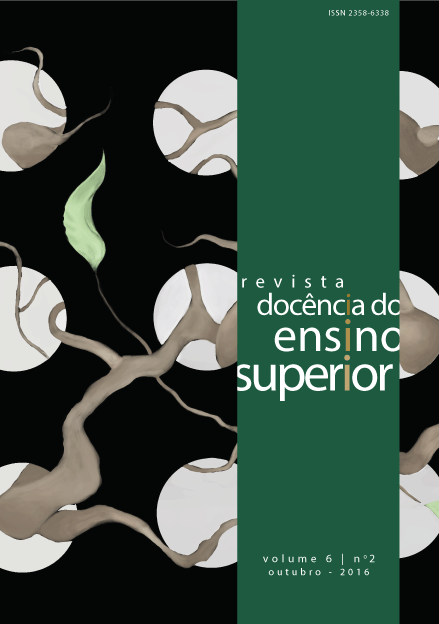Gamification in higher education as a strategy to develop competencies
experience report at psychology graduation course
DOI:
https://doi.org/10.35699/2237-5864.2016.2093Keywords:
Teaching gamification, Active methodologies, CompetenceAbstract
Education, from the competence perspective, involves knowledge, skills and attitude. Teaching gamification can be used to develop competencies. For such, pedagogical practices should merge clear goals and rules with fun and engagement. Few studies have been conducted in Brazil regarding teaching gamification, especially in higher education. This work describes the experiment made with the activity “Intervention Paths” in the Psychology course. The activity provided team interaction, situation analysis, decision making, roleplaying and problem solving. Three coordinators led the activity during three hours in one day. 27 students took part in the activity and there were no external rewards planned. Intense engagement, fun and skills improvement were observed. The experience was found effective and could be useful for developing new active teaching methodologies based on the propositions of teaching gamification.
Downloads
Downloads
Published
How to Cite
Issue
Section
License
Authors who publish in this journal retain the copyright and grant the journal the right of first publication, with the work simultaneously licensed under the Creative Commons Attribution License which allows the sharing of work with acknowledgment of authorship and initial publication in this journal.
Authors are authorized to take additional contracts separately, for non-exclusive distribution of the version of the work published in this journal (e.g. publish in institutional repository or as a book chapter), with acknowledgment of authorship and initial publication in this journal.
Open access policy:
Revista Docência do Ensino Superior is an Open Access journal, which means that all content is available free of charge, at no cost to the user or their institution. Users may read, download, copy, distribute, print, search, or link to the full texts of the articles, or use them for any other legal purpose, without seeking prior permission from the publisher or author, provided they respect the license to use the Creative Commons used by the journal. This definition of open access is in line with the Budapest Open Access Initiative (BOAI).
























